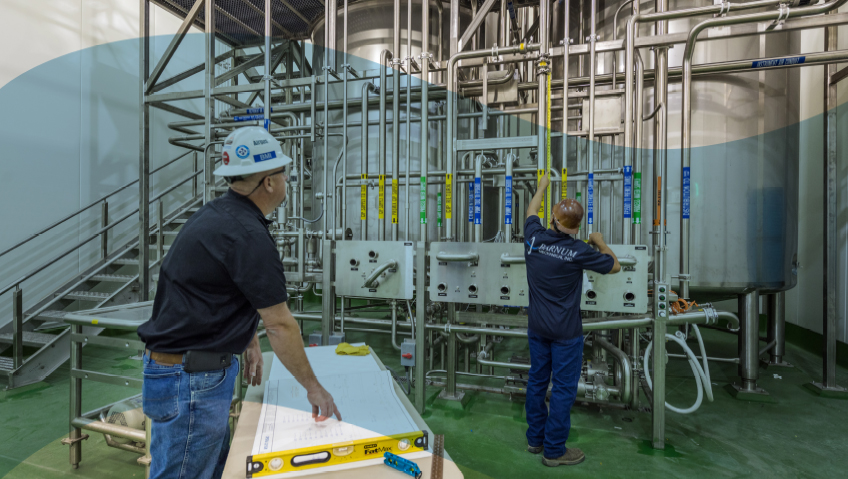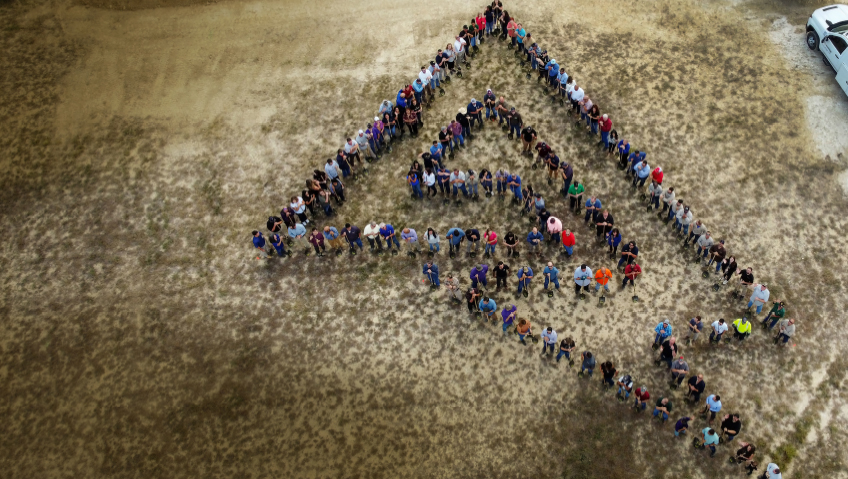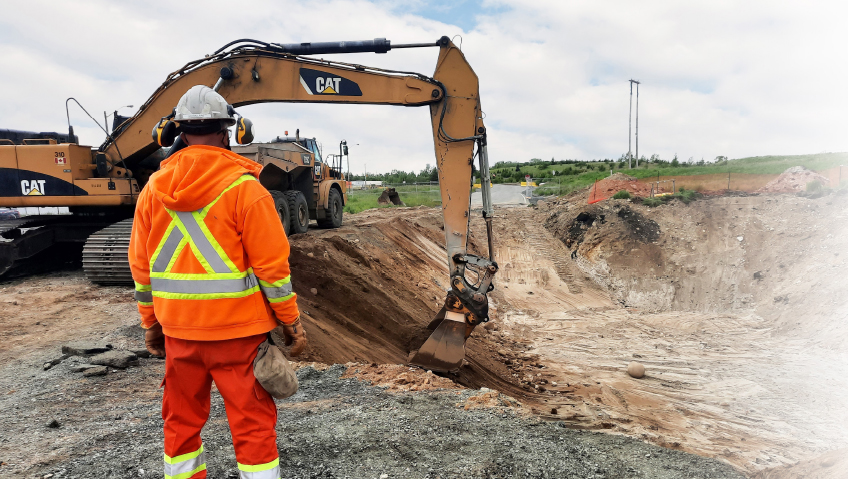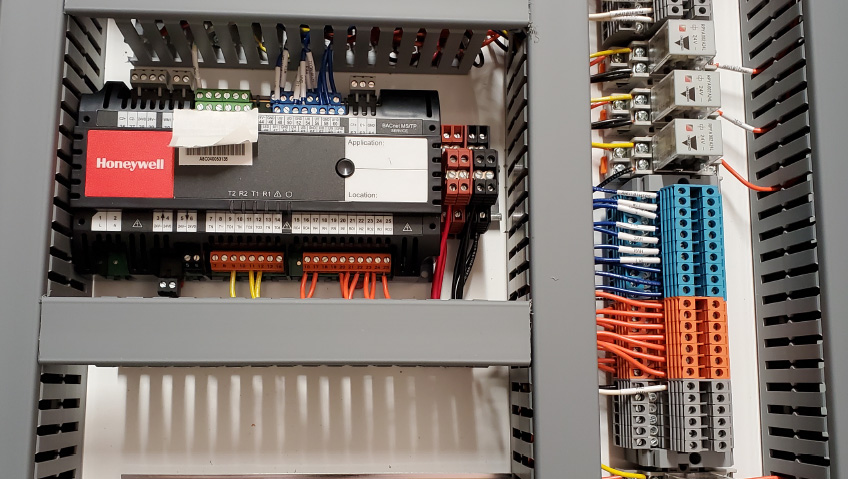Barnum Mechanical Inc., a mechanical contractor and supplier specializing in sanitary process systems and piping, was founded by welder Tom Barnum in 1980. Barnum, having made his living in sanitary processing, felt he could offer more to the industry with his own approach.
Over forty years later, Barnum is now a full-service design-build firm operating throughout the United States. Business Development Engineer Jared McClintock explains that the company concerns itself with self-performed installations, allowing a turnkey system to be delivered to customers so they can minimize time spent with additional vendors.
Barnum’s placement in the industry, according to McClintock, begins with the philosophy that it can provide more value to its customers. “Food and beverage processors are always under huge pressure to produce more at faster speeds and lower cost,” he says. “Our solutions last a long time and allow the customer to make product changes easily.”
McClintock says that the Barnum installation crews are incredibly skilled, engineering and installing state-of-the-art automated control systems thanks to the partnership of automation and process engineers who who design robust systems that produce consistent products. The company also sports its own custom fabrication shop, allowing it to produce necessary changes for customers with a turnaround of hours as opposed to days. Its systems are designed with total cost of ownership in mind and are built to last and grow and evolve as the user does.
McClintock cites Tom Barnum’s history in welding as a reason why the company’s welding skills are a point of pride. “Tom has high standards for everything in the company but especially with welding, [as it relates to] techniques, inclusions, stress cracks.”
A commitment to innovation is seen in the company’s interest in evolving technology and staying ahead in the market. It works frequently with universities like UC Davis and vendors like Alfa Laval to create solutions that help both parties innovate and eventually lead to the best equipment possible for customers’ distinctive needs.
The company’s use of the design-build model of project delivery is appreciated because it allows clients to partner with the company early in the process and for Barnum to act as an in-house engineering department, while working with them to narrow in on the best solution and innovate in real time. Using the progressive design-build model means that “We get things built in half the time because we focus on what is needed and are working in parallel with the client,” says McClintock.
Barnum can design standard food processing systems but it also works with customers to build never-before-seen systems. For example, McClintock relates that the company recently designed and installed a new brewery that uses less than half the normal amount of water to produce its beer and, in turn, removes 99 percent of contaminants from wastewater. This is especially helpful because of how water-intensive craft breweries are.
Barnum also worked with another international company to design a system to turn bio-solids and food waste into green energy. He sees these as very exciting opportunities and admits how lucky it is to have customers who want to innovate and bring these ideas to the market.
Customers today are concerned about health, animal welfare, and sustaining the planet, so new solutions must be adaptable and flexible. Within the last few years, Barnum has relished the opportunity to work with forward-thinking processors like Better Meat Company, Kite Hill, and Impossible Foods among others, allowing it to focus on an emerging market that it believes in and working with passionate people. There is now a global drive in the industry toward more sustainable solutions like plant-based foods, alternative proteins, and cultivated meats. The company is constantly researching and implementing new technologies to promote and implement sustainability.
“Companies don’t just want products made to a certain specification but to have it done in a sustainable way,” McClintock explains. “This is very fun for us, and we are able to move in the market well because we are nimble.”
Generally, most processors are not concerned with aesthetics or the involvement of outside parties, but today’s wineries, breweries, distilleries, and cultured meat plants have begun to invite outside eyes into production facilities and even livestream production lines, meaning the demand for showcase installations and a greater aesthetic appeal is necessary. Barnum helps its customers select the right equipment for their needs and fabricates custom parts in-house.
The company has a commitment to sustainability in its processes and outlooks, and McClintock verifies that every system designed by Barnum is built with this in mind, existing as a basic design imperative. Engineers look for ways to recapture both energy and water at any point and design systems to reduce solid waste, biological oxygen demand, and wastewater.
The company takes an end-to-end approach when designing solutions and components, which allows it to reduce the environmental impact in the long run by viewing a project holistically. Its focus on process engineering also allows it to tie one piece of equipment into a facility to minimize negative environmental consequences and to better understand how to save resources.
In 2020, its fortieth year of business, Barnum Mechanical faced the challenge of operating within the global COVID-19 quarantine. The consequences of the pandemic through its supply chains hit it hard as the inherent need for sanitation in the food and beverage industry caused necessary but serious interruptions, a problem that is still ongoing. McClintock remembers that some customers cancelled big capital projects. Conversely, others, such as clients introducing innovative ready-to-eat food products, were made even busier to keep up with increased demands. Barnum’s robust safety measures were increased and adapted to keep workers busy and perform the work clients needed, and this achievement is something of which the company is very proud.
McClintock’s view of the industry in 2021 is that change is the only constant. “We are not quite back to pre-COVID and won’t be until our supply chain problems are solved, but we have had unique opportunities to work with long-term clients on fun and innovative projects.” Much growth still lies in emerging markets, and with the industry remaining an essential one, Barnum will look to roll with any punches that come its way and stay abreast of new technology to provide the best customer solutions.
The company is also currently in a growth mode and is looking to hire more engineers. McClintock notes that the company has retained many highly-skilled employees through the past forty years which allows it to confidently innovate.
He defines Barnum as an exceptional company that taps into its forty years of experience to do new things. “Innovative is only relevant to now. We learned what worked and what didn’t work,” he says. “Having a gut feeling for innovation is unique to Barnum.”






